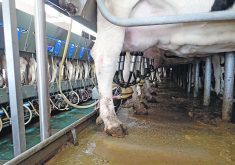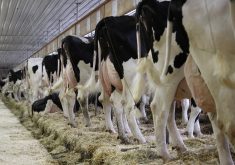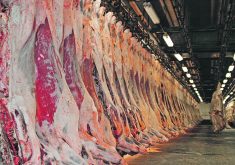Government introduced legislation earlier this month to ratify deal, but it didn’t pass before Parliament’s summer break
On June 21, Luc Berthold was about to get in his car, leave Ottawa and drive home to his riding of Megantic-L’Erable.
The member of Parliament was heading to Thetford Mines, south of Quebec City, because the House of Commons adjourned for the summer June 20.
Berthold, the agriculture critic for the Conservative party, was in a good mood, looking forward to a summer of barbecues, fairs and other events in his constituency.
However, one large and nagging issue weighed on his mind: the Comprehensive and Progressive Trans Pacific Partnership (CPTPP).
Read Also

University of Saskatchewan experts helping ‘herders’ in Mongolia
The Canadian government and the University of Saskatchewan are part of a $10 million project trying to help Mongolian farmers modernize their practices.
“I just don’t understand why they (Liberal government) didn’t ratify it during this session (of Parliament),” he said. “We offered them a lot of co-operation to do it. But they just tabled the bill…. We just don’t know why.”
The CPTPP, or TPP-11, is an 11-nation trade agreement that includes the key country of Japan. Canada and the other 10 countries signed the agreement in early March but it doesn’t take effect until six nations ratify the deal.
The Canadian Agri-Food Trade Alliance (CAFTA), which represents the beef, pork, grains, oilseeds and pulse sectors, along with food exporters, urged the federal government to ratify the deal this spring so Canada would be in the first group of countries to approve the agreement.
If Canada isn’t in the initial group, countries that are one of the first six could take advantage of lower tariffs and preferential access in the key market of Japan.
On June 14, the Liberals introduced legislation to ratify the TPP-11, but that was too late to get it through Parliament during the spring session.
That means ratification will be pushed back to the fall, as MPs are expected to return to the House of Commons Sept. 17.
It could be difficult to ratify CPTPP before the end of 2018.
“The fastest that a trade agreement has gone through (was) 14 weeks, for Korea,” said Brian Innes, CAFTA president, adding that Parliament will sit for 11 weeks during the fall session.
Innes made the comment during a June 21 news conference.
CAFTA brought farmers to Ottawa for the event, to share their concerns about international trade and market access for Canadian agriculture products, such as pork.
“Japan is one of our key markets with sales of over $1 billion each year,” said Rene Roy, a hog producer from Quebec. “We strongly urge all MPs to move forward with the ratification of the CPTPP as soon as the House of Commons returns in the fall. Delays in ratifying … will prevent us from capturing market shares and maintaining our competitive edge in Asia.”
CAFTA has criticized the federal government for moving too slowly on CPTPP while at the same time praising International Trade Minister Francois-Phillipe Champagne, for his support of the deal.
The minister may be a CPTPP champion but the tight parliamentary timeline in the fall is concerning, Innes said.
Berthold sees it differently.
The Tories support CPTPP so they won’t hold up the necessary legislation in the fall session. Plus, the Liberals could use a tactic called allocation, which limits the time to debate a bill.
“If it’s the will of the Liberals, we can pass it in five weeks…. Around five or six weeks,” he said. “They will have the support of the official opposition party.”
If the Liberals don’t have the will, the ratification process could drag into 2019, an election year. It’s possible that trade and the CPTPP could become a federal election issue.
Canada’s dairy industry and the automotive sector oppose the deal. Unifor, the union that represents Canadian autoworkers, has vowed to fight ratification of CPTPP. It believes the deal discourages foreign investment in Canada’s auto sector.
Innes didn’t mention the auto industry or opposition to CPTPP during his presentation to the media.
But if TPP ratification is delayed, the political risk increases.
“There’s always a possibility that things get bogged down in election politics or events that overtake the House agenda,” he said.
“There’s a real concern that as we move into an election year, as issues arrive on the parliamentary agenda, that this (CPTPP) does not stay a priority.”
There’s also a chance that the political momentum around CPTPP will peter out over summer, making it harder to move legislation forward in the fall.
That’s why CAFTA is encouraging farmers across the country to talk to their local MPs this summer about the importance of trade.
In Thetford Mines that won’t be necessary.
Berthold will be leading the conversation about TPP this summer.
“You can rely on us to make it stay in the media,” he said.
“We (won’t) let this momentum (stop) for the summer.”















